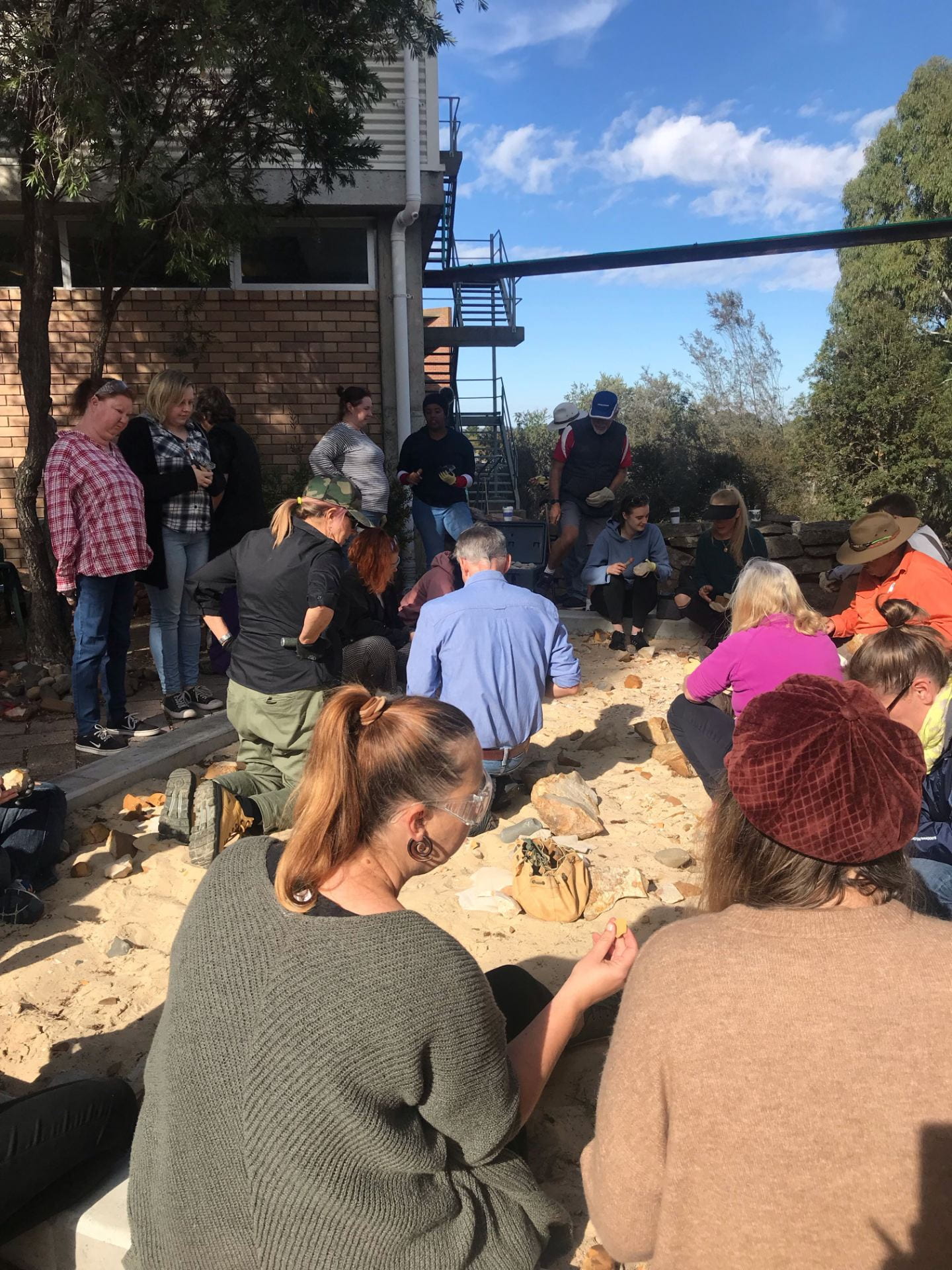Of all the intensive schools happening at the University of New England (UNE) over the past couple of weeks, the archaeology students have been perhaps the most visible. They’ve been on their hands and knees digging and surveying various mock excavation sites around the university to develop their practical skills.
“It’s the first time many of the students have done field work, learning the techniques to survey and record a site,” says archaeology instructor Kimberlee Newman.
“For many of them, I think the highlight will be the excavation. It’s about giving them experience with the basic skills to record, survey and excavate a site when you might be carrying only the bare minimum of equipment.”
According to the students, the practical skills, experience with some of the site equipment and interaction with classmates have been the real highlights over the week. Oh, and the pub trivia two nights in a row, according to master’s student Barry Williams, from Grafton.
“It’s the social aspect!” Barry says. “It’s also been good to meet the lecturers in person and be able to speak with them face-to-face, meet my classmates and make those connections.”
Barry has also enjoyed the scientific aspect of lab work. “I have an interest in Indigenous archaeology, and have enjoyed learning the attributes of artefacts and the stories they can tell us about a location.”
While recording data from the mock excavation exercise, Jasmine McAleer from Kingaroy, Queensland, says she switched from a master’s in history to her real passion of archaeology. “I love the research aspect, does that sound boring?” she laughs. “I’m really into human evolution.” And after the lab intensive, she says she’ll never look at glass the same way again. “It’s actually very fascinating! We used various methods for dating and to determine, colour, make and things you overlook until you really study it.”
Waiting for her turn to sift layers in the excavation pit, Tahnee Searle from Toowoomba says learning the practical skills has helped her consolidate the theory. Archaeology offers unique opportunities and a fresh perspective. “I love both history and exploring and I’d love to travel. I’m interested in women in history. Archaeology is the hands-on part of it: you get to see what they saw and also see how things work for yourself.”
“Meeting the staff has been fantastic,” Mark McLean, from Nambucca Heads, adds. “They always have time to have a detailed chat about what you want to do and where you want to go.” His favourite part of archaeology? “I’m an analyst nerd! One of the joys of archaeology is being able to apply methods you know to solve problems you don’t know.”
Mark will be putting to use the surveying skills gained through the field intensive to use onsite with the archaeology staff at Port Arthur later this month.
Julie Sebanc-Butler, from the Gold Coast, is also heading to Port Arthur. “Archaeology is very collaborative. Here, you’re learning valuable skills and also learning to work with people and network. You always have to make an effort to engage with other students and the professors. Archaeology is a small field, and these are potentially your future colleagues.”
Patty Lee, from Coffs Harbour, is no stranger to learning, having completed degrees in writing and psychological sciences. But she couldn’t resist the allure of archaeological discovery.
“I want to be there in Xi’an, China, when they open the first emperor’s tomb!” She wants to visit sites in Russia and Mongolia, but also enjoys the process of gaining knowledge.
Corey Richards, from Western Queensland, says the intensive school experience has exceeded his expectations. “It’s been brilliant. More productive than I was expecting. And prior to coming to this intensive school, I hadn’t met any of my classmates.” Corey will be able to directly apply his skills to a dinosaur dig back in Queensland, as part of his job at the Eromanga Natural History Museum.
‘Intensive’ it may be. But dirty, sore and tired, “you can’t put a price on experience,” as Tahnee says, and it seems no enthusiasm has been dampened in the making of these field archaeologists.



Recent Comments